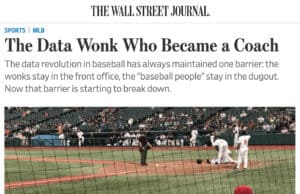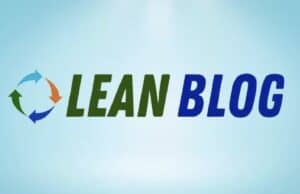Tag: Leadership
Can You Answer “Yes” to These Three Important Workplace Questions?
I'm often reminded of three challenging questions that are asked by Paul O'Neill, former CEO of Alcoa and former US Treasury Secretary.
I've mentioned the questions before, in this blog post about Eric Ries and an employee's bill of rights. See more blog posts and my podcast with Mr. O'Neill.
Sadly, I'm reminded of the questions when I'm around people who cannot answer "yes" to them in healthcare workplaces. This is a widespread problem.
Lessons from Tesla “Schooling” Toyota: Did You Get the Memo?
Tesla CEO Elon Musk has been quoted as saying he will "school Toyota on Lean manufacturing."
OK, let's take inspiration and lessons from the apparent Tesla Way management system. What would happen if hospitals and other organizations tried emulating Tesla instead of Toyota? What are the methods and mindsets? The behaviors and principles? What's the management approach and culture?
Part 2: 20 Years Ago at GM, the Quality Death Spiral...
Recently, I blogged about a quality catastrophe that I lived through at GM just over 20 years ago, at the now-closed GM Livonia Engine Plant.
Bluntly, the quality problems were caused by poor management and the side effects of their decisions. Even though they constantly blamed workers, management directly interfered with workers and engineers being able to do the right thing for quality.
Here is Part 2 of that story... the first quality "spill" took place in April 1996. As I wrote about last time, Angry high-horse memos were sent out by management. Workers were told to have pride and to pay closer attention to quality (as if those had been the problems).
Leaders & Lean: We Need to Better Support Doctors and Other...
When surgeons have no better options than complaining about process problems on LinkedIn, are their leaders and organizations really properly supporting them? In this post, we'll explore questions of blame, accountability, and engaging people in process improvement... being of better service to them.
How to Go From Analytical Wonk to “Process Improvement” Coach
As you might know, I have always enjoyed baseball and like blogging about ideas and statistics that come from the sport.
I loved this recent article from The Wall Street Journal and there are parallels to Lean and being an effective change agent:
"The Data Wonk Who Became a Coach"
20+ Years Ago at GM: The Quality Death Spiral of Bad...
My first job out of college was as an Industrial Engineer at the General Motors Livonia Engine Plant. Blogging didn't exist then (I didn't even have email or internet access at work) or I might have started my writing career then. Oh, the stories. I've shared some of them on this blog over time.
I've blogged about papers from the Don Ephlin files, a former UAW national leader. I have my own small collection of documents and artifacts from my days at GM that I thought to keep in a folder. I still have that folder today.
A few of these memos tell the story of a quality and productivity death spiral that eventually led to our plant manager being replaced. And, by "replaced," I don't mean fired or given an early retirement. He was, at least in title, PROMOTED to a role at GM Powertrain headquarters. Thankfully, the new plant manager, Larry Spiegel, was one of the original "NUMMI commandos" and he made a huge difference to the plant and to me, personally.
Notes from Hearing Captain “Sully” Sullenberger Speak: Humility, Leadership, and Safety
After I kicked off the Lean Six Sigma World Conference this week, I had the fantastic opportunity to hear the now-legendary Captain Chesley "Sully" Sullenberger...
Can Humility Lead to Excellence?
Mark's Note: Today's post is by Kay Kendall, CEO & Principal of BaldrigeCoach. You might remember her from episode #277 of my podcast. She's the co-author of Leading the Malcolm Baldrige Way: How World-Class Leaders Align Their Organizations to Deliver Exceptional Results. Kay sent this out recently via her email newsletter and I asked her if I could share it here.
Podcast #303 – Craig Deao, Effectively Engaging Employees… and Everyone Else
Joining me for Episode #303 is Craig Deao, a senior leader with Studer Group.
Today, we're talking about his book The E-Factor: How Engaged Patients, Clinicians, Leaders, and Employees Will Transform Healthcare. We'll talk about the differences between satisfaction and engagement, how to tell if people are engaged in their work, and how to engage various stakeholders, including employees, clinicians, and executives. We'll also talk about how Studer Group became a recipient of the Malcolm Baldridge National Quality Award in 2010.
“Measures of Success” — The Need for a Measured Response to...
Measures matter. The proper analysis of data and performance metrics allow us to separate good changes from bad, progress from stagnation. The methods in my book, Measures of Success, help us determine if our performance is getting better, getting worse, or essentially remains unchanged. Having the right set of balanced scorecard metrics is important. But the role of leaders is important, too. How do leaders interpret measures? How do they respond to changes in metrics? How do they know if a change is worth reacting to?
Managers Must Help The People They Supervise
Last week, a nurse manager downloaded the free first chapter of my book Lean Hospitals and wrote this message in the contact form:
"Interested to see how the disconnect between management and the staff supervised can be helped. Too many managers refuse to help those they supervise. A growing number have never done the work that they are in charge of getting done. Patients and residents feel it, not healthy. Poor PR. It does get back to the consumer. Difficult to fix at that point."
In my experience working with many hospitals, her comments resonate with me. Identifying problems like these doesn't mean Lean provides easy solutions for organizational transformation.
The question I’d ask in response to “Why are my employees...
Over the years, many people have asked me some variation of the question:
"Why are my employees not embracing Lean?"
More often than not, the tone of the question is of blame... blaming the employees for not embracing Lean.
In this post, I share something I originally wrote on LinkedIn and I'll elaborate a bit and share some of the LinkedIn comments...

















